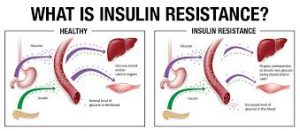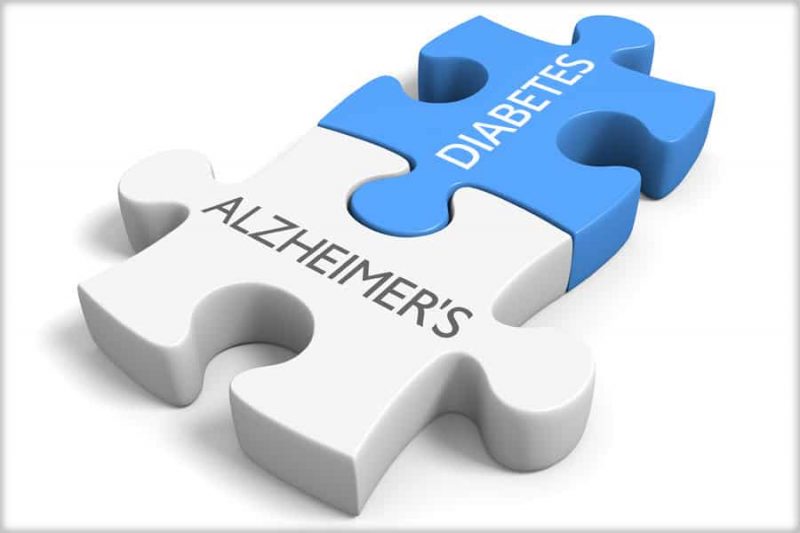Recent decades have seen the drastic rise in many metabolic disorders such as type two diabetes (T2D). In 2015, over 415 million people in the world were affected by diabetes with projections to rise to over 700 million people by 2045. Alzheimer’s disease (AD) is a neurodegenerative disorder which leads to the memory loss and a decline in cognitive mobility. How could these two diseases possibly be related? Recent studies have shown that having T2D doubles an individual’s risk for AD! The correlation between the two diseases results from insulin resistance which can be caused by several factors including inflammation and the malfunction of gangliosides.

Insulin Resistance
In order to truly understand the correlation between the two diseases. it is first imperative to understand insulin resistance. Insulin, a hormone found throughout the body, is often associated with the regulation of glucose in the bloodstream. Insulin binds to a tyrosine kinase receptor, which signals for the uptake of glucose and other chemicals into the liver and other tissue in the form of glycogen, lipids and protein respectively. The inhibition of this processes leads to high concentrations of glucose in the bloodstream thus resulting in type two diabetes. However, extensive studies have shown insulin plays a vital role in other central nervous system functions. In the brain, insulin is neuroprotective and promotes neural growth and survival. Therefore, insulin resistance in the brain leads to the degeneration of neurons causing neurodegenerative diseases. Two of the main way’s insulin resistance occurs is through inflammation and ganglioside malfunction.

Inflammation
In diabetes insulin resistance has been proposed to develop as a consequence of mild, sustained inflammation of peripheral tissues. In obesity and type two diabetes it is well described that the accumulation of fat in adipose tissues causes recruitment of macrophages and cytokines which have been shown to induce ER stress. This ER stress then leads to insulin resistance. However, Alzheimer’s brains have also been shown to have sustained, chronic, low grade inflammation. This inflammation may precede symptoms and is believed to paly an important role in the pathogenesis of AD. It is thought that the low-grade inflammation is mediated by microglia which secrete cytokines and result in insulin resistance in the brain. The secretion of the cytokines impairs synaptic function, has been shown to cause ER stress, and finally causes insulin resistance in the brain.
Ganglioside
Microdomains within the brain serve as signaling platforms for many receptors to form complexes with other proteins and non-protein components. Research has shown that proper signal transduction is highly dependent on the correct location of microdomains. Recent studies have shown that the inhibition of various gangliosides in these microdomains can result in the improper insulin signaling and lead to insulin resistance. In diabetes abnormal ganglioside metabolism impaired insulin receptor signaling by interacting with alpha beta plaques. In Alzheimer’s these gangliosides promote the alpha beta plaques to aggregate which impairs insulin receptor function, which can lead to synaptotoxicity. This then leads to the degradation of neurons and results in insulin resistance.
LAST DESSERTS
Both T2D and AD are major health problems which seem to be growing at an alarming rate. These recent studies have shown that the reason for this could be because the two diseases are so closely linked. Some scientists are even going as far to calling Alzheimer’s disease type three diabetes. With the correlation shown to be so strong there are thing that can be done to limit an individual’s chances of getting both T2D and AD. These things including eating a proper diet and exercising. How much is your favorite treat really worth to you? Hopefully you don’t forget about what’s really important.
Sources:
https://www.ncbi.nlm.nih.gov/pubmed/29129775
https://www.abcam.com/pathways/overview-of-insulin-signaling-pathways
https://www.naturesaid.co.uk/blog/understanding-blood-sugar-balance-insulin-resistance
